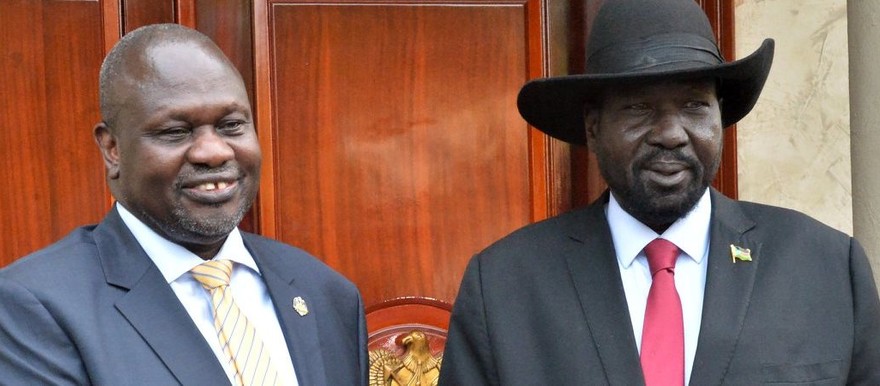A section of opposition groups that signed the 2018 peace agreement on Thursday expressed reservations about outcomes of the recent meeting between President Salva Kiir and opposition leader Riek Machar, especially on the issue of states.
During a close-door meeting held in Juba on Wednesday, Kiir and Machar agreed to form a committee to look into the number of states and their boundaries, one of the challenges in the peace deal.
Kornelio Kon Ngu, the leader of the National Alliance of Political Parties, told Radio Tamazuj that the decision by the two principles to set up a committee on the number of states and their boundaries without involving the other parties to the peace deal is unacceptable.
He said critical tasks such as security arrangements and the number of states and their boundaries need to be discussed by all the parties to the peace agreement. “There are mistakes in the implementation of the agreement and this may return us to square one. Some parties are being excluded and this is unacceptable,” he stressed.
Kon appealed to President Salva Kiir and opposition leader Riek Machar not to make unilateral decisions on the implementation of the peace agreement.
Meanwhile, the interim leader of SSOA faction, Josephine Joseph Lagu said the coalition's position was that talks on the number of states and their boundaries should involve the parties to the peace agreement.
She, however, said the alliance is not opposed to the decision to form a committee in an attempt to break the impasse over the number of states, but stressed that the process should involve all the signatories to the peace agreement, civil society organizations and stakeholders are involved.
Lagu said the matter should be referred to the East African bloc IGAD to make appropriate decisions when the committee fails in its task.
Peter Mayen Majongdit, the chairman of the umbrella parties, said the Independent Boundaries Commission (IBC) failed to resolve the issue of states and that a political decision on the number of states and their boundaries should be made by the parties to the peace agreement.
“We will accept the committee if it is inclusive, not a committee between Machar and Kiir. And if it is only between the two principles, we will not be part of it,” Mayen said.
President Salva Kiir, opposition leader Riek Machar and a number of other opposition groups signed the peace agreement in September 2018, but the rival leaders had been unable to create a unified army and determine the number of states since the deal was signed.




